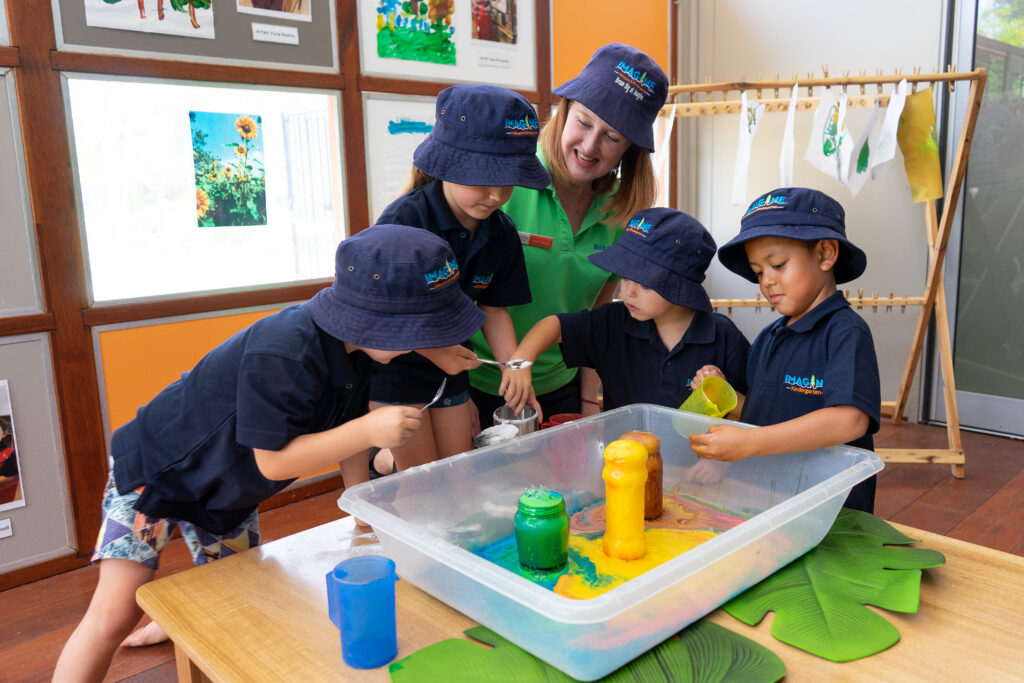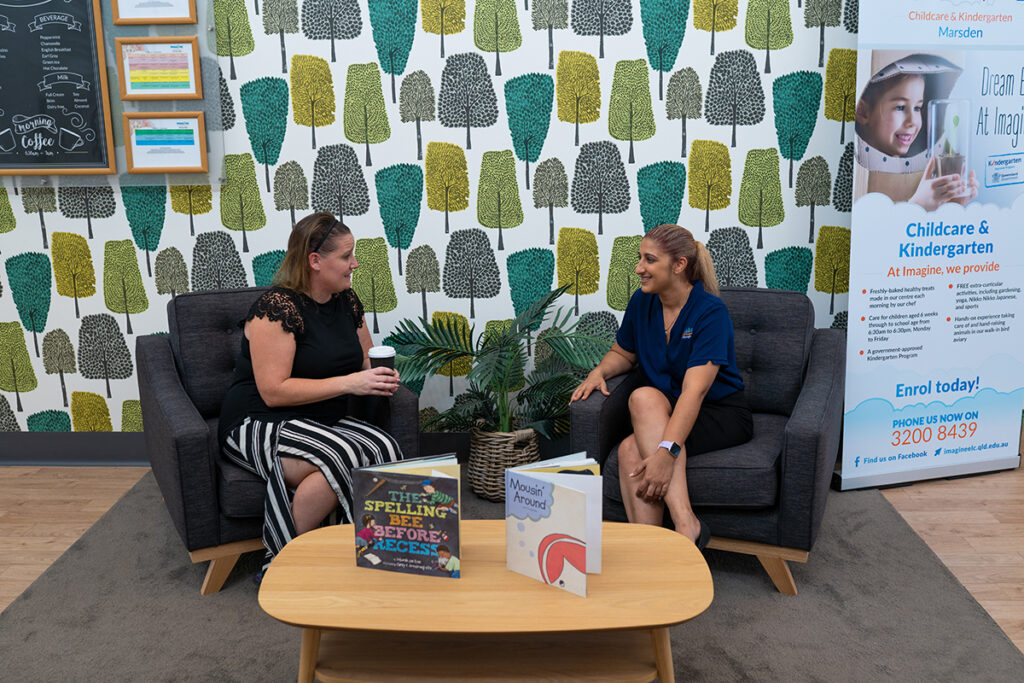In the world of early childhood education, the use of critical reflection is gaining prominence as a powerful tool for Educators and Early Childhood Teachers. Critical reflection is the deliberate process of examining and analysing one’s thoughts, beliefs, practices, and experiences to gain a deeper understanding and make informed decisions.
At Imagine Childcare, we believe that it is fundamental for all Educators to continuously and critically reflect on our practices and our curriculum to benefit the children’s interests and needs. The voice of the child and the voice of the parent are main components that influence our critical reflections and promotes ongoing learning.
In this blog, we will explore the significance of critical reflection in early education and why it is essential for the holistic development of children.

Enhancing Teaching Practices
Critical reflection allows Educators to assess their teaching practices, strategies, and methodologies. It prompts them to question the ‘why’ behind what they are doing.
By reviewing their teaching methods, Educators can make the necessary adjustments to ensure that they are using the best approach for the children in their care.
Fostering Professional Growth
Early childhood Educators who engage in critical reflection continually seek opportunities for professional development. This not only benefits the Educators but also the children they teach. As Educators become more self-aware, they can identify their strengths and areas that need improvement, leading to more competent teaching and better outcomes for their students.
At Imagine Childcare, we are proud to say we provide our Educators with a robust, ongoing professional development and training program. Our goal is to support all team members to become the very best Educators possible and to ensure positive learning outcomes for all the children attending our centres.
One of the many topics covered in this training program includes a module on ‘Reflective Practice’. Another training course in the program is the ‘National Quality Framework: Exceeding Themes 2’, which teaches the foundational knowledge of Critical Reflection as per the National Quality Framework (NQF) guiding document.
Promoting Individualised Learning
Each child is unique, and early childhood education must cater to these individual differences. Critical reflection helps Educators identify the diverse learning needs, interests, and strengths of each child. By understanding and reflecting on these differences, Educators can adapt their teaching methods and materials to create a more personalised learning experience.
At Imagine Childcare, we recognise and celebrate the diverse learning styles of children. We are dedicated to catering to the unique learning needs of each child, fostering an environment where every child can feel accomplished. Our goal is to inspire every child, cultivating a genuine passion for learning that will accompany them throughout their lifetime.
Enhancing Classroom Management
Effective classroom management is crucial for maintaining a positive and productive learning environment. Through critical reflection, Educators can assess and improve their classroom management strategies. They can identify the causes of disruptive behaviour, explore alternative approaches, and create a more harmonious classroom setting that fosters learning and social development.
Fostering Emotional Intelligence
Emotional intelligence is a vital skill that should be fostered from an early age. Critical reflection encourages Educators to pay attention not only to what they teach but also how they teach it. By being emotionally aware and responsive, Educators can create an atmosphere where children feel safe expressing their emotions, developing their emotional intelligence, and learning how to manage their feelings.
Supporting Inclusive Education
Inclusive education is about ensuring that all children, regardless of their abilities, have the opportunity to learn and develop together. Critical reflection helps Educators recognise the barriers to inclusion, such as biases and stereotypes, and empowers them to create a more inclusive and equitable learning environment.
At Imagine Childcare care we provide cultural experiences as part of our curriculum to raise multi-cultural awareness. By identifying differences and similarities, as well as celebrating a range of cultures, this promotes an inclusive environment for children and Educators.
Strengthening Partnerships with Families
Involving families in early childhood education is crucial for a child’s development. Critical reflection encourages Educators to assess their communication and engagement with parents and caregivers. Through this process, they can foster stronger partnerships with families, ensuring a collaborative approach to a child’s education and well-being.
At Imagine Childcare, we provide parents with access to a mobile app as one of the many communication channels available. The mobile app allows families to share in their child’s learning journey, as well as communicate directly with Educators and other team members. Most importantly, this allows parents to gain deeper knowledge of how their child is developing and therefore the opportunity for further involvement in their child’s learning journey.

Critical reflection is a transformative practice in the field of early childhood education. By engaging in this process, Educators gain a deeper understanding of their teaching practices, fostering professional growth, and providing more individualised learning experiences for children in their care.
As we strive to provide the best possible foundation for children at Imagine Childcare, critical reflection has proven to be an indispensable tool in achieving this goal, making a significant difference in the lives of the children in our care.

